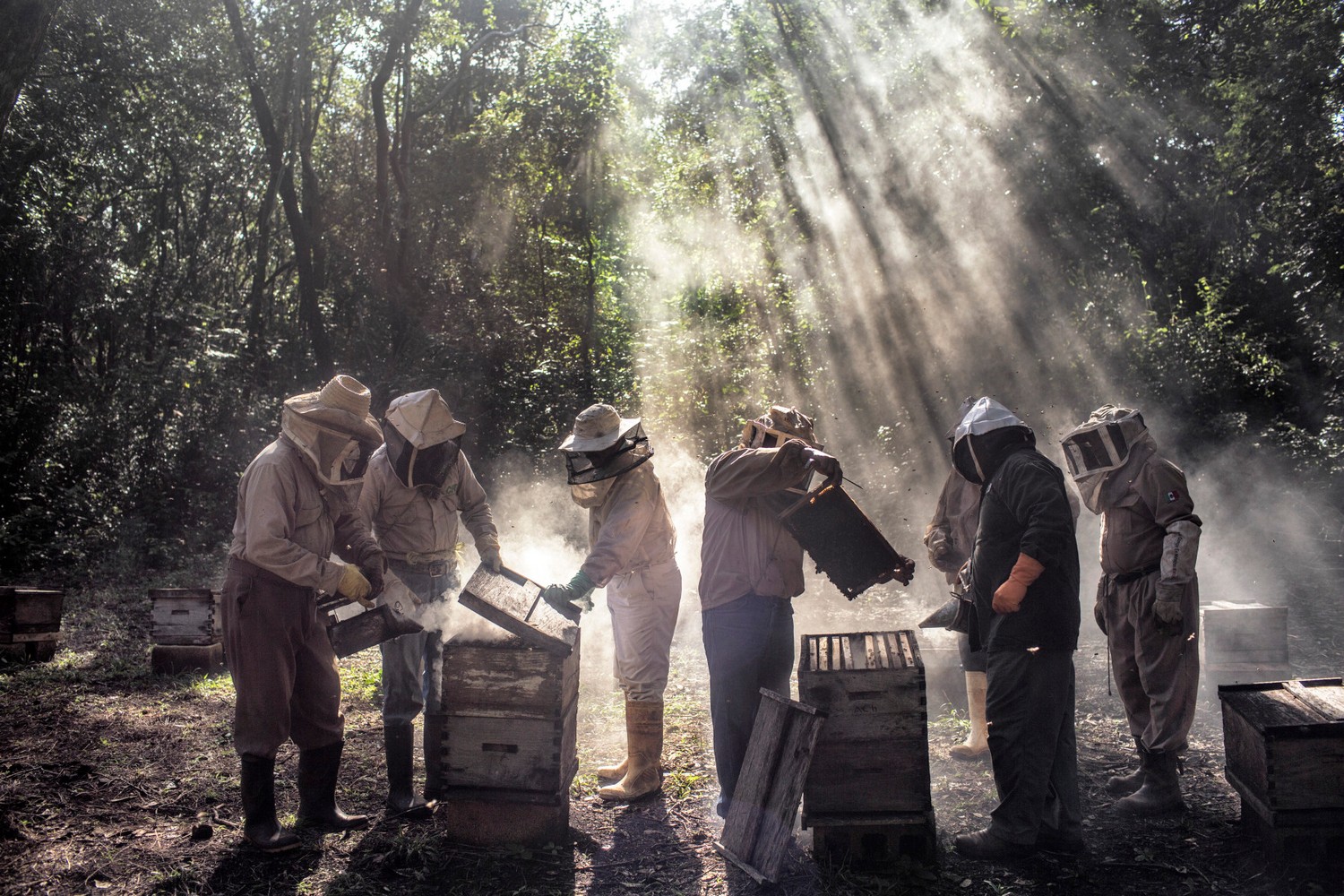
Tinun, Mexico-November 4th, 2018: A group of beekeepers tending to their hives in the off season while the beas are getting ready to start polinating as flowers are just beginning to bloom. The group is led by Professor Russei Armin Balan (cousin of the recently decesed Anastacio Balan Osalde) who has been certified in a course to apply techniques in producing organic honey. Mayan beekeepers of the Yucatan Peninsula have been grappling with contaminated honey ever since transgenic soy was introduced into the farming of the region. The soy is produced primarily by the continually expanding Mennonite community by a government supported subsidies program. Traces of the soy and glyphaste, the main agrotoxin used to kill off weeds around the resistant soy have been found in the honey which is of organic quality and which the Mayans export to Europe mainly through Germany. The honey which must now be labeled when it contains elements of the soy or toxins is being bought now at a much lower rate. The mennonites are also buying up land from the indigenous communities and cutting down virgin forrest land in order to expand there existing communities and create moer farm land. As a result many bees also disappear, wtih diminishing flowers to polinate. In 2015 the supreme court in Mexico ruled to prohibit the use of transgenic soy in the country, yet soy farmers have continued to plant the modified version and operate with impunity despite the law.
